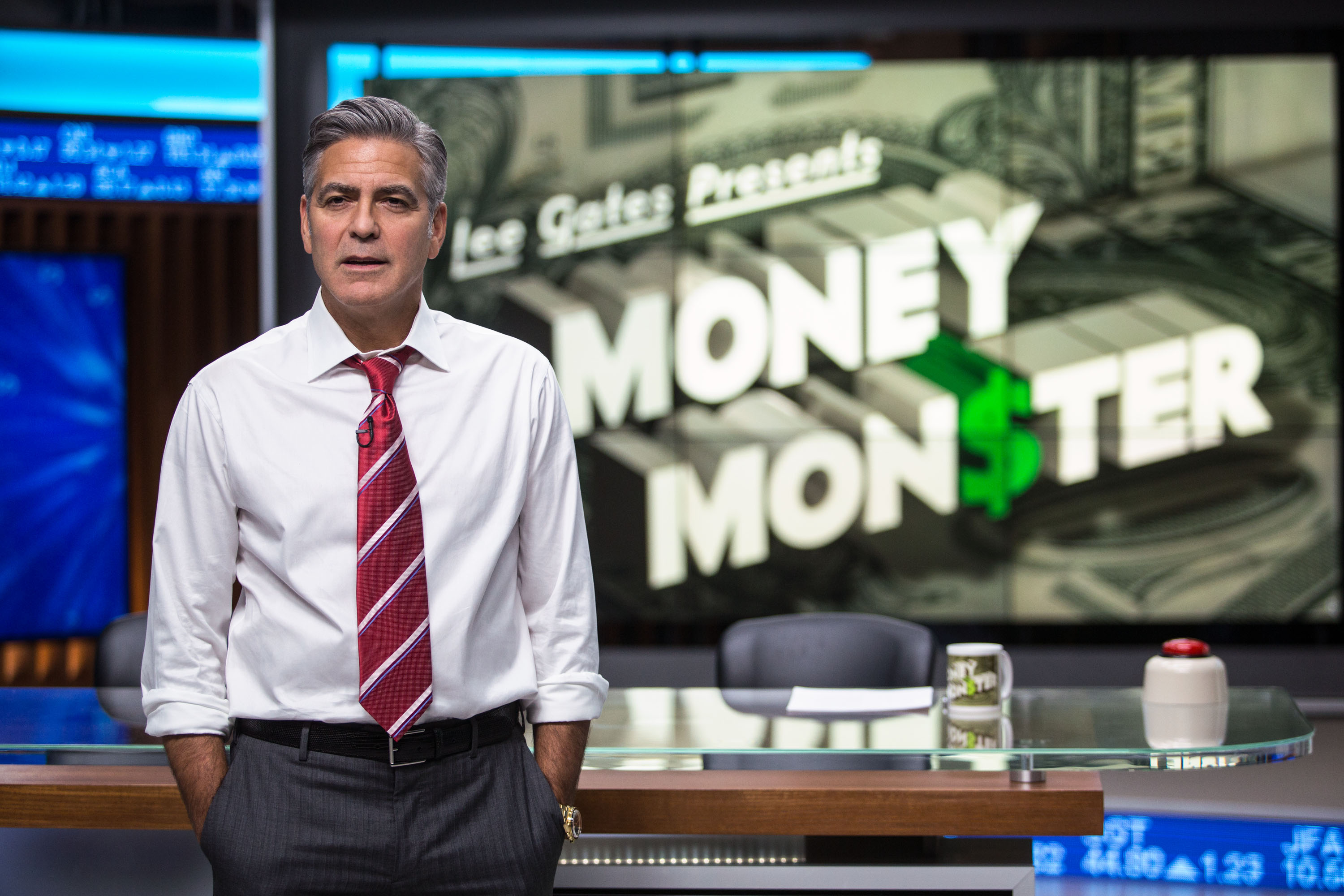Money is the new sex at the movies. Actually, if we're honest, maybe it was also the old sex. Whatever — in our overly consumerist society, money is on everyone's mind and more filmmakers are discovering the excitement that a stock chart can generate.
This includes Jodie Foster, who seems to glide effortlessly between her stints as a filmmaker (admittedly few and far between) and her cast-iron status as one of Hollywood's most enduring and iconic actresses. Unlike her last directorial/acting outing in 2011 with "The Beaver," Foster stays put behind the camera for "Money Monster," a tension-filled headline-grabber of a movie that flings dollar signs around like an electronics store on Black Friday. The talk is all about money: who has it, who doesn't and how everything it's involved in is rigged.
Though "Money Monster" takes on financial institutions, it's a totally different ball game to last year's "The Big Short," another film that blabbed endlessly about finance and cash flow. While "The Big Short" revealed an earnest and sincere lust for money, Foster's vehicle is more about rage and resignation — rage because the protagonist loses all his money on the stock market, resignation because deep down, he also knows he just can't win.

















With your current subscription plan you can comment on stories. However, before writing your first comment, please create a display name in the Profile section of your subscriber account page.